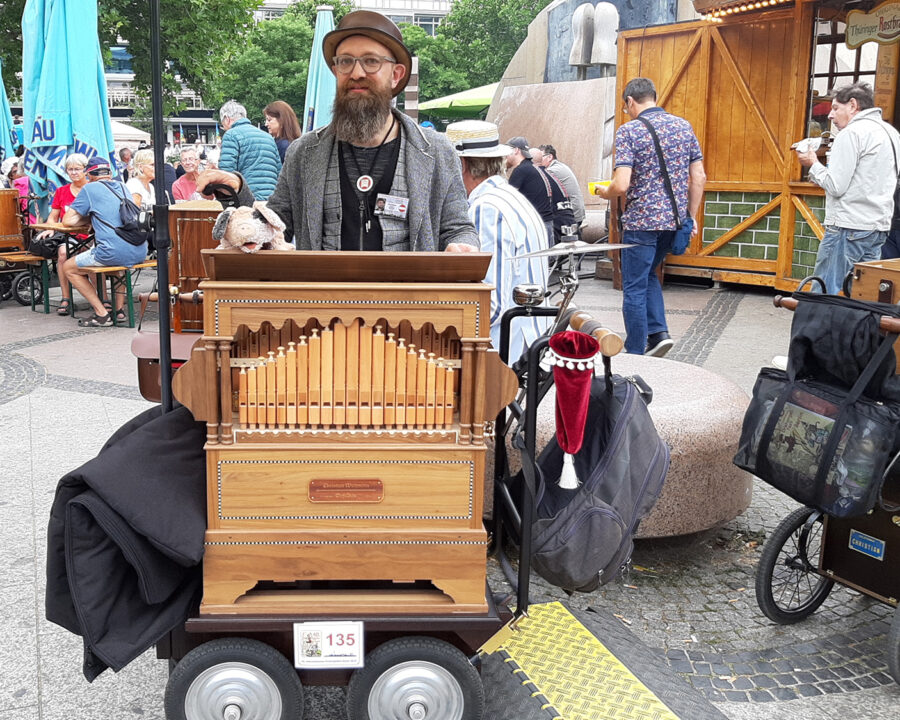In the center of Vienna, one often hears the barrel organ (in German Drehorgel) – a hand-cranked mechanical instrument that plays pre-programmed melodies. It is a familiar sight in tourist areas and has a long history in European street music culture. Today this instrument remains active not only in Austria, but also in other parts of Europe: Germany, Poland, Czech Republic, Hungary, Slovenia and Poland.
The barrel organ has a history spanning several centuries with debated origins, though early evidence points to the Netherlands in the 15th century. Powered by a hand crank, these organs became common feature of European street-life – particularly in the Netherlands, France and Germany – from the 18th century onward, entertaining crowds with pre-programmed melodies.
The instrument evolved from earlier mechanical musical devices, with the first documented “street organs” appearing in the Netherlands in the 15th century and more detailed diagrams of stationary versions emerging in the 17th century.
Barrel organs were integral to urban social scenes, often played by organ grinders earning a living on the streets and enjoyed at fairs and public gatherings. It is important to distinguish the barrel organ from the hurdy-gurdy, another crank-operated instrument: while both are hand-cranked, the barrel organ plays fixed compositions, whereas the hurdy-gurdy allows the player to improvise.
About Christian Wittmann Orgelbau
Christian Wittmann Orgelbau, founded in 2009, is an Austrian one-man company specializing in the construction, restoration and maintenance of barrel organs. All components (except electronics) are made in house using selected materials and precise craftmanship. The company also is the only one producing the musical sheets for this instrument and through his production he is supplying all the players in Austria. Models range from compact street organs to fully chromatic instruments, available with mechanical or MIDI control and customizable on request. Wittmann’s restoration work is based on extensive experience with historical pieces.
How it works
The barrel organ operates through a system of bellows and small organ pipes, driven by a manual crank. The music is controlled by a punched music roll (in German Notenrolle) which guides the air through the correct pipes to produce each note. Accurate reading of this roll is essential for proper sound reproduction.
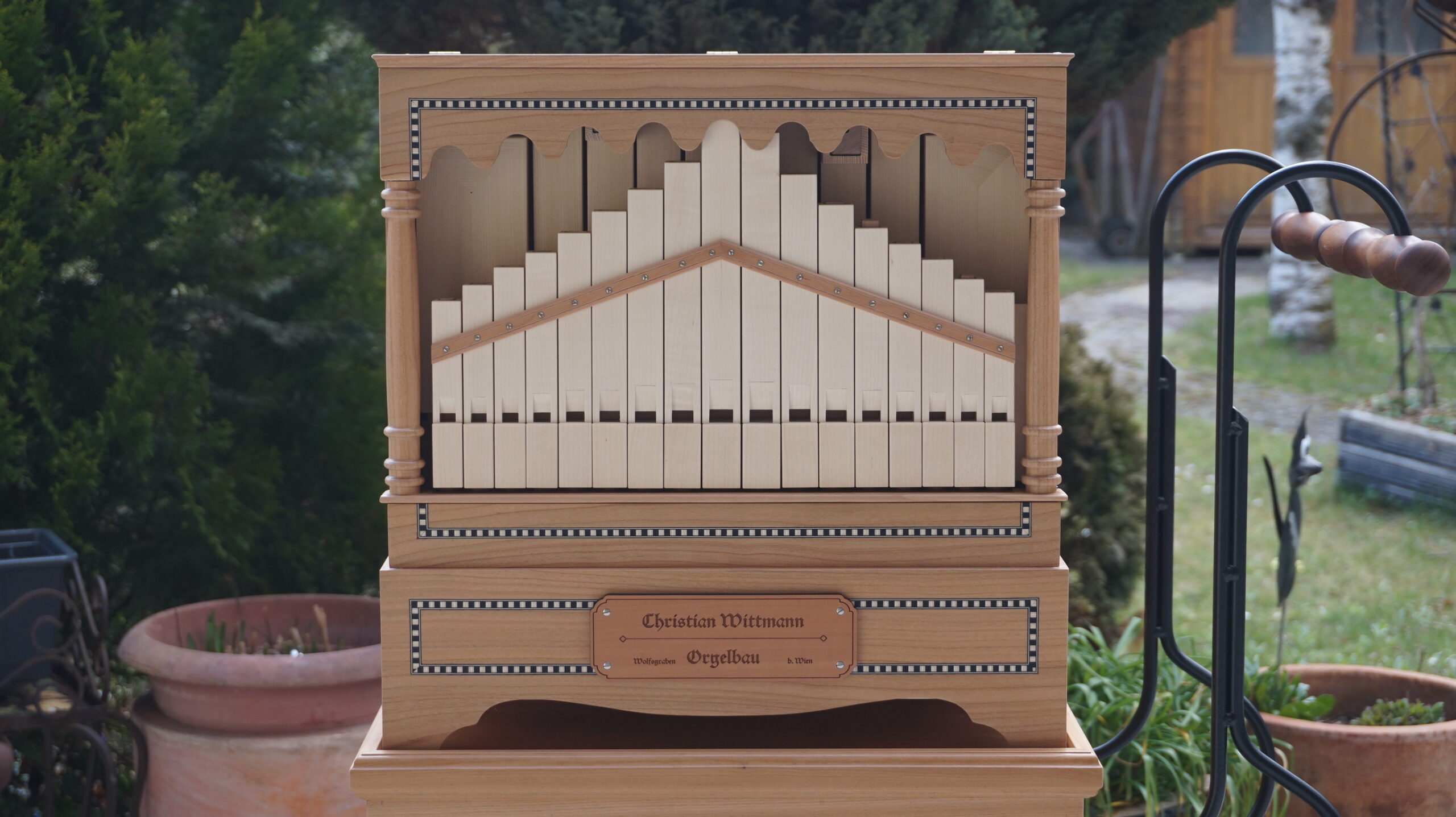
We had the opportunity to ask Christian Wittman a few question regarding his craftmanship, and we’re excited to share the answers with you:
How did you come to work in this niche of building barrel organs, repairs, restaurations and music rolls?
Since childhood, I was interested in music, learned to play piano and organ, and then discovered the world of mechanical music. After school, I started an apprenticeship for organ building, and from this time I repaired barrel organs and organettes (small cardboard or roll operated reed organs). Later I started to develop and build new street organs and making music rolls for these.
Are you the only producer of music rolls in the area? Are your customers exclusively from Austria, or also from other countries?
It seems that I am the only commercial producer of music rolls (for street organs) in the area of Austria. I have many customers here in Austria, but most of the rolls go to Germany, and other European countries, as well as overseas.
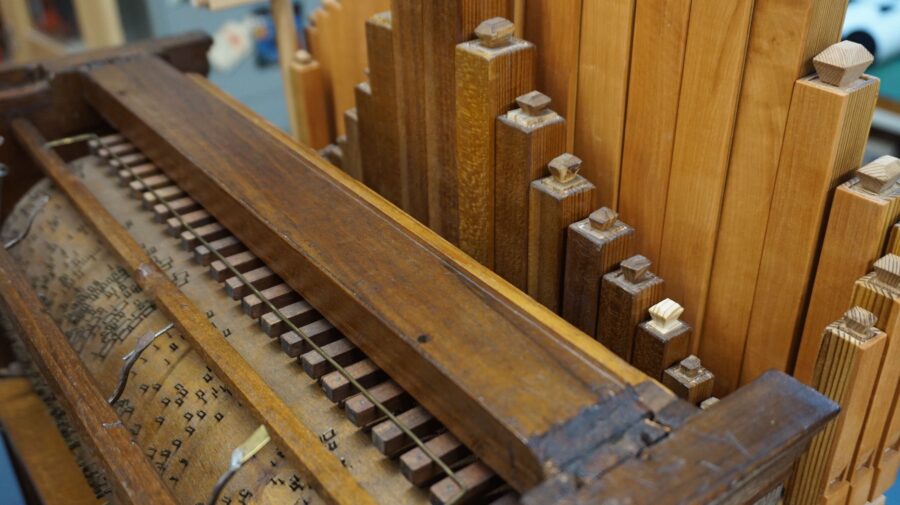 Where might our readers find a barrel organ, to hear live? Are there events happening around Europe, where the instruments are being played?
Where might our readers find a barrel organ, to hear live? Are there events happening around Europe, where the instruments are being played?
In summer season, you can find some organ grinders playing on the streets, especially on festivals for street organs – there are big festivals in the Black Forest, and Berlin for example. Some museums offer live demonstrations of their instruments on display.
How many hours of work goes into building a barrel organ? What about a musical sheet?
It takes between 120 and 700 hours to build a barrel organ (street organ), depending on size, number of notes and pipes. All parts are being made by hand, so it is a time consuming job to build such an instrument.
The punching machine can punch a music roll within about 8 hours, and a cardboard disc needs about 1,5 hours.
How many minutes of playing does a musical sheet generate?
A music roll for my street organs can play up to 10 minutes, which is suitable for 3-4 tunes on a roll.
Do you know of other countries in Europe, where the barrel organ is played?
Barrel organs are being played in most coutries of Europe. It is very popular in Germany, The Netherlands, Belgium, Switzerland, France and England, but I know of organ festivals in many other countries of central Europe.
Do the music rolls for the barrel organs need to be waterproof? If yes, what is the reason behind this?
The barrel organ is an outdoor-instrument. The music roll is exposed to sun, rain and other environmental influences like humidity and dust.
The material that makes it work: SuperYupo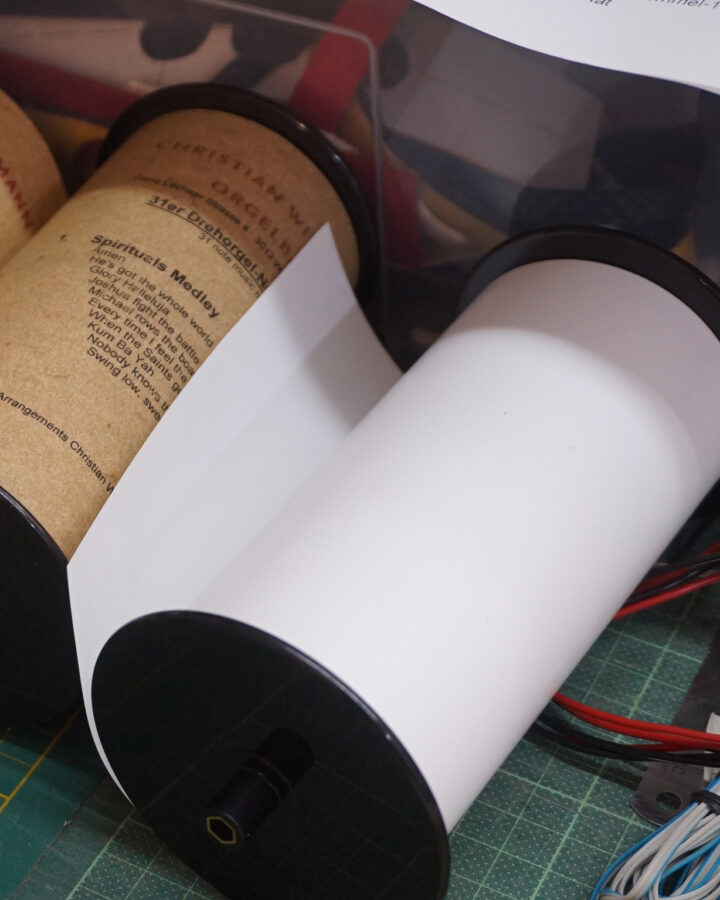
In 2025, Christian Wittmann Organ Builder, the only producer in Austria of music rolls for barrel organs, selected SuperYupo 95 µm (reel format) for their production. Yupo synthetic papers are made from polypropylene and combine the benefits of both traditional paper and plastic films. They have a matt surface and an exceptionally soft and smooth feel. SuperYupo is a bright white, 100% waterproof synthetic paper that offers designers, printers and manufacturers a paper that stands up tough conditions while printing it beautifully. SuperYupo’s versatility and beauty shine through with every project due to its outstanding attributes.
Why SuperYupo?
To produce the music rolls used in barrel organs, absolute material precision is essential. Each roll contains around 30.000 individually punched holes and even the slightest deviation could compromise the entire melody. This is why the material chosen must be exceptionally stable, tear-resistant and capable of running smoothly through the punching machine. In this context, SuperYupo stood out as the ideal solution. Used in a 95 µm version on reels, SuperYupo offers a rare combination of dimensional accuracy, strength and flawless surface quality.
The material chosen for the music rolls must be exceptionally stable, tear-resistant and capable of running smoothly through the punching machine. SuperYupo stood out as the ideal solution.
Unlike traditional paper or plastic films, SuperYupo is a synthetic paper made from polypropylene, combining an even surpassing the advantages of both. Its soft, matte surface ensures not only a pleasant tactile feel, but also exceptional print performance, vibrant color reproduction and excellent contrast. Furthermore, it is highly resistant to water, chemicals and oils and generates no dust during production – a key benefit when working with precise mechanical systems like music roll punchers.
Thanks to these unique characteristics, SuperYupo, guarantees a reliable and consistent sound reproduction, roll after roll – an essential quality for a street instrument that lives on the emotional connection it builds with the audience. That’s why Christian Wittmann Orgelbau, the only Austrian company producing these musical rolls, relies on SuperYupo for this delicate and fascinating craft.
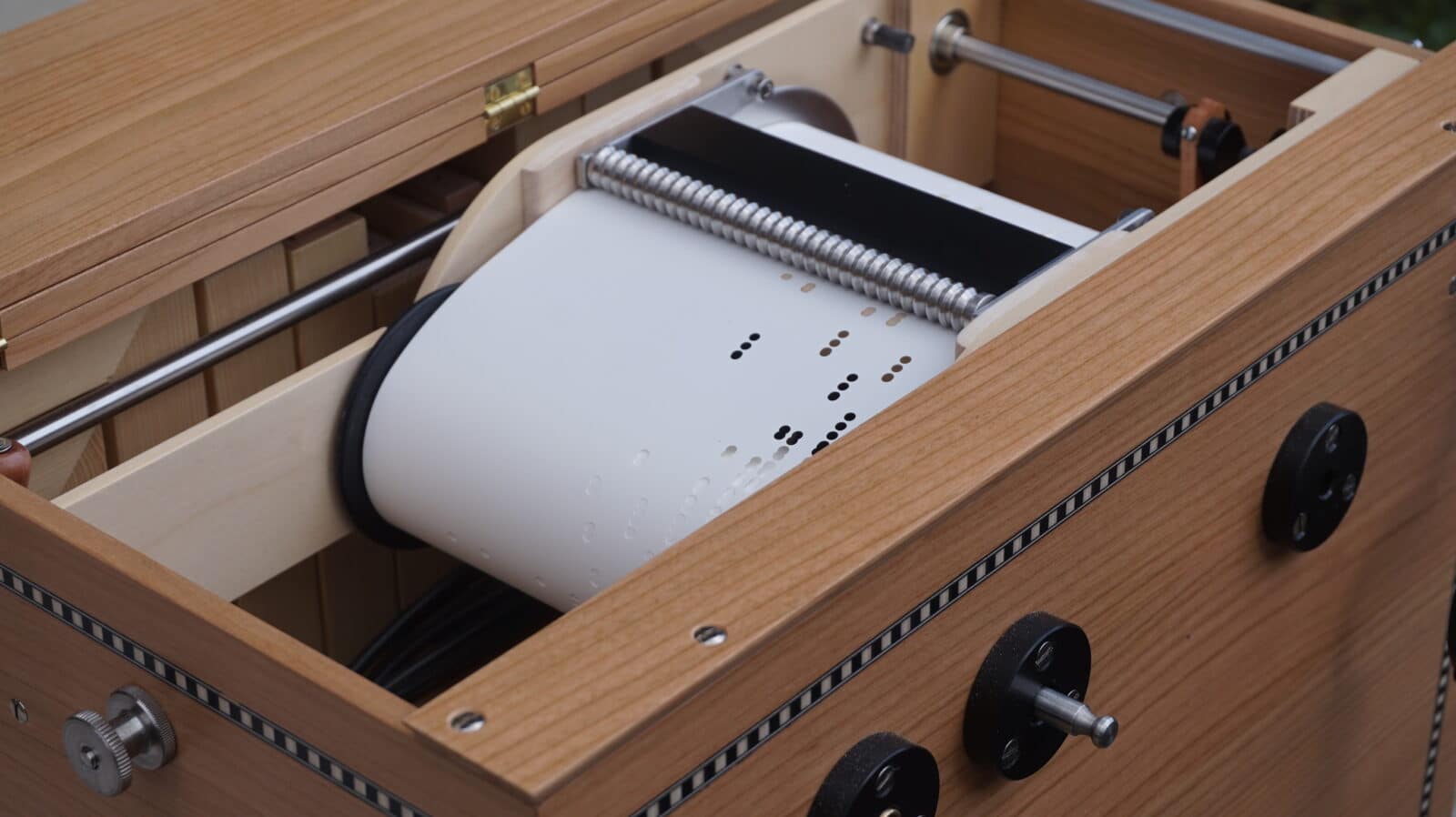
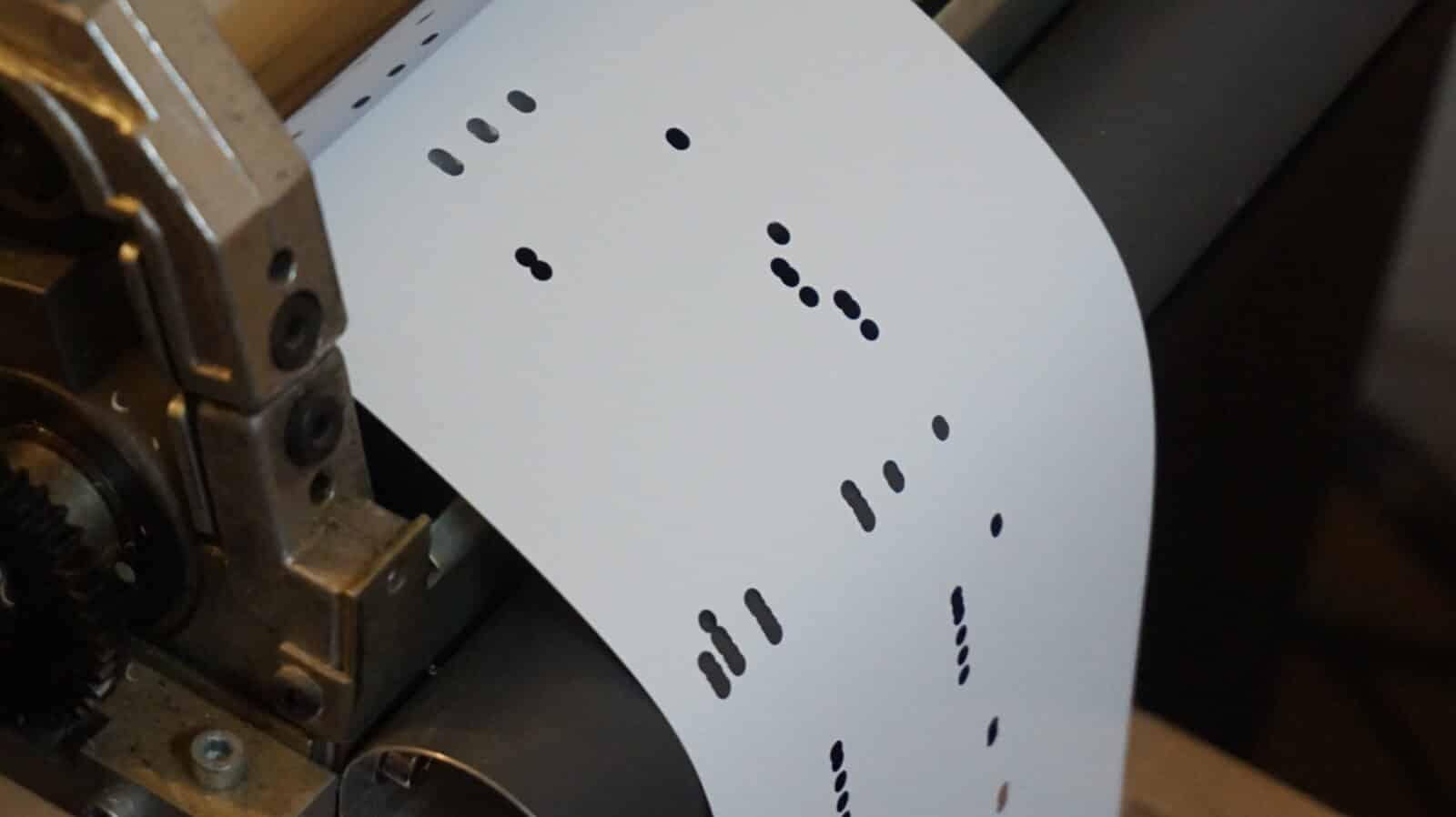
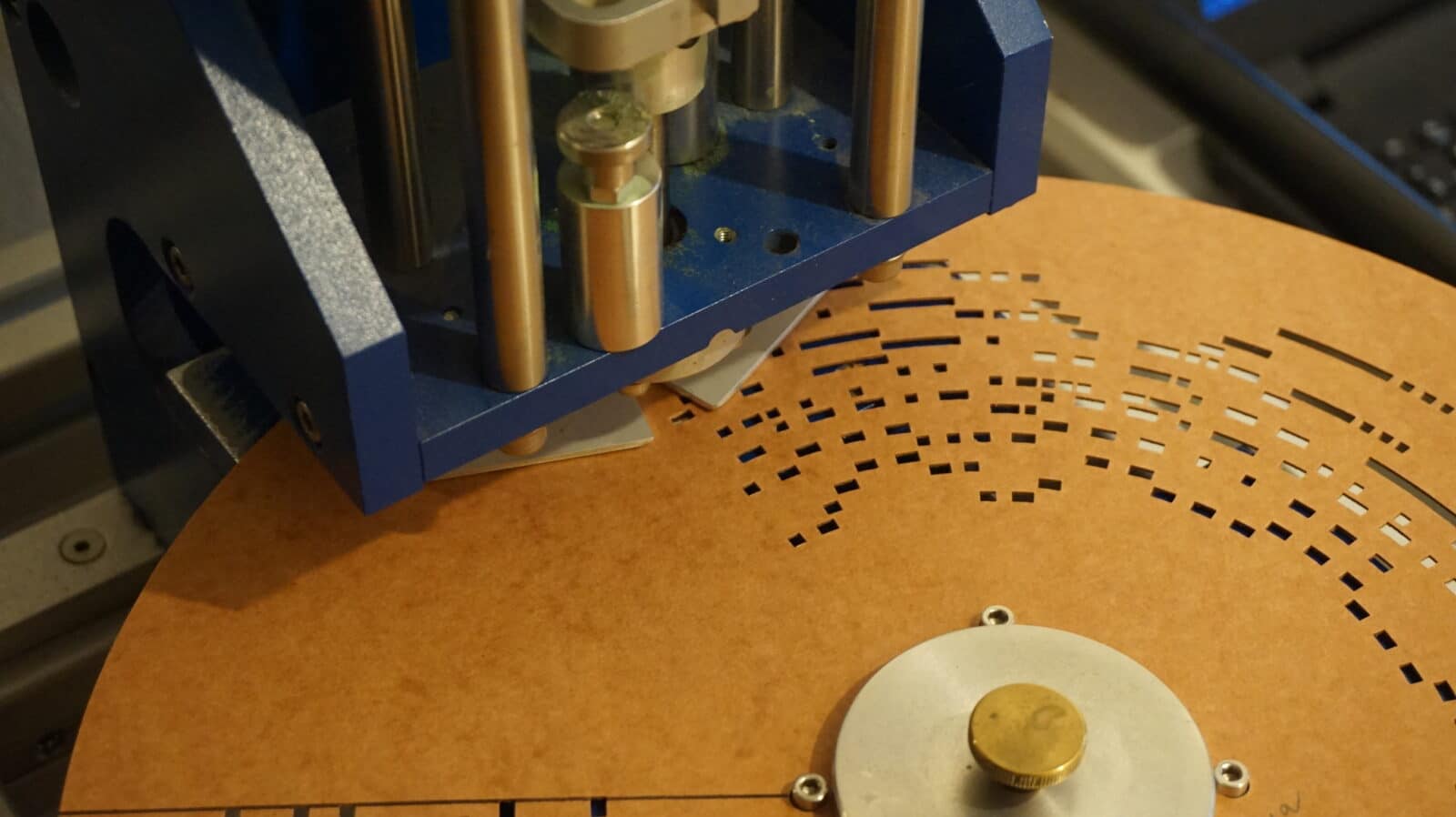
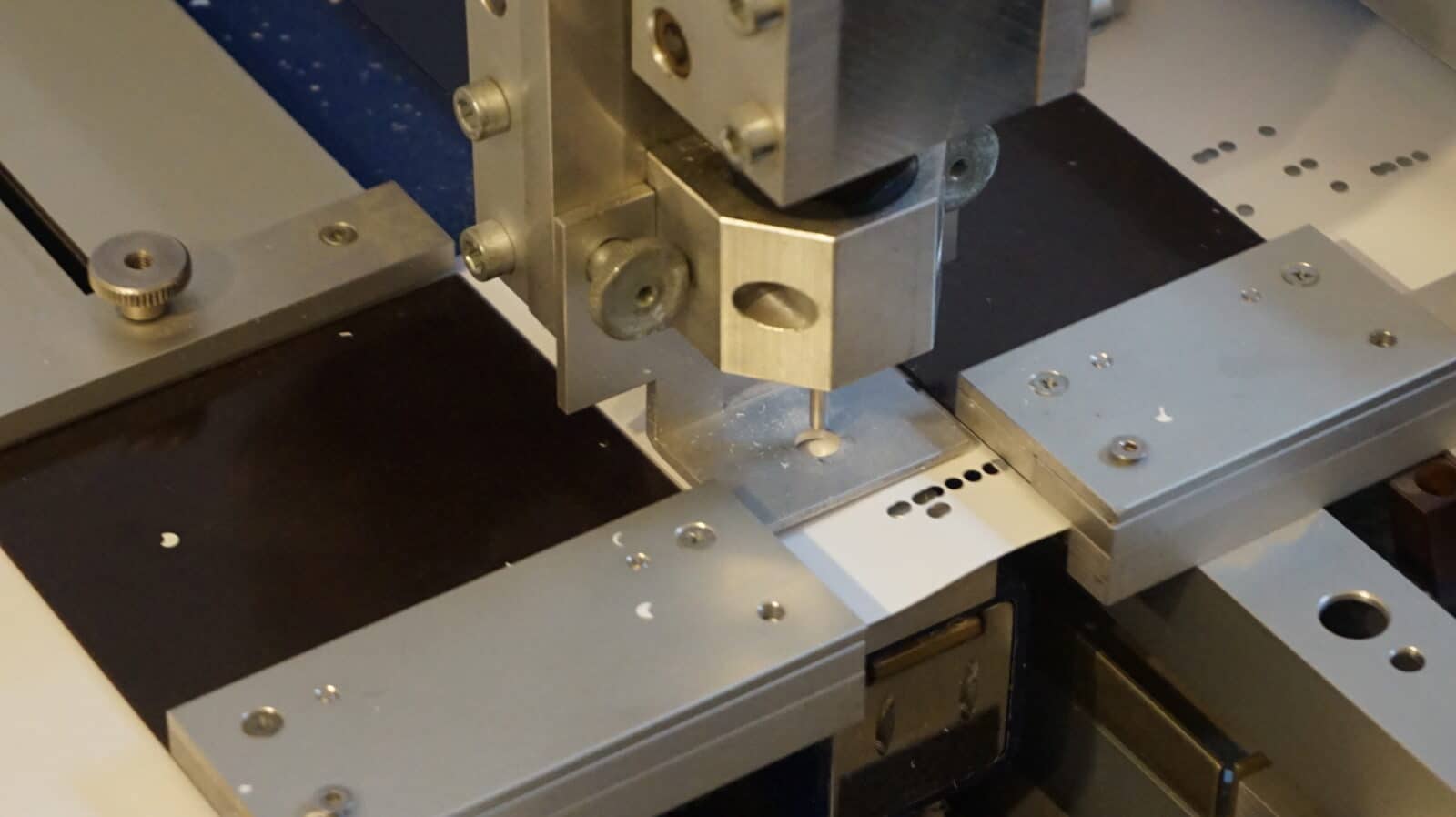
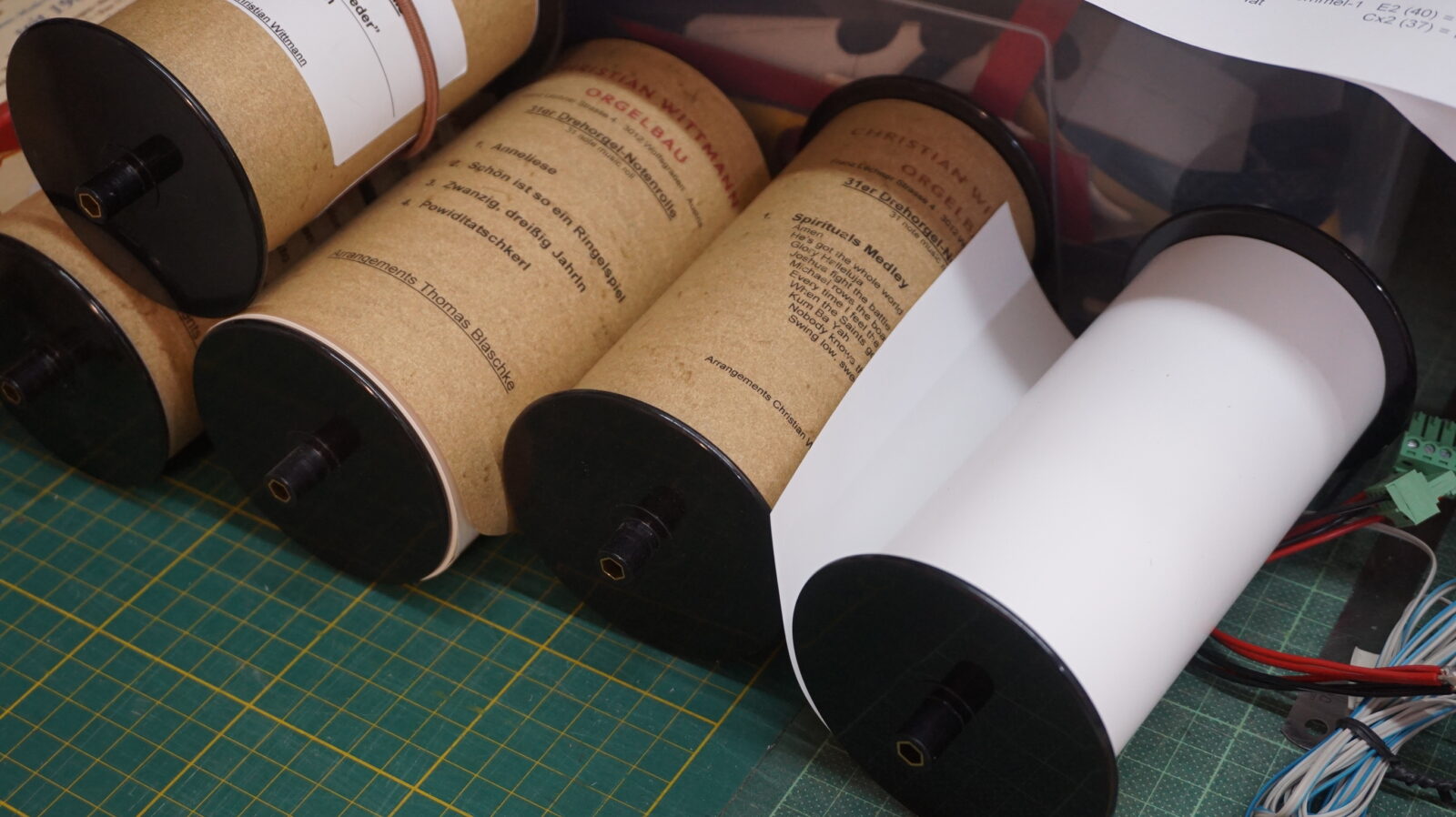
Combining Craftsmanship and Performance
Whitman’s use of SuperYupo demonstrates how traditional craftmanship and modern materials can work together. The music roll may seem like a small component, but it plays a critical role in preserving the precision and the function of the barrel organ.
By choosing SuperYupo, Wittmann ensures that a centuries-old instrument can only continue to be used reliably in modern settings – from Vienna’s city center to tourist destinations across Central and Eastern Europe.
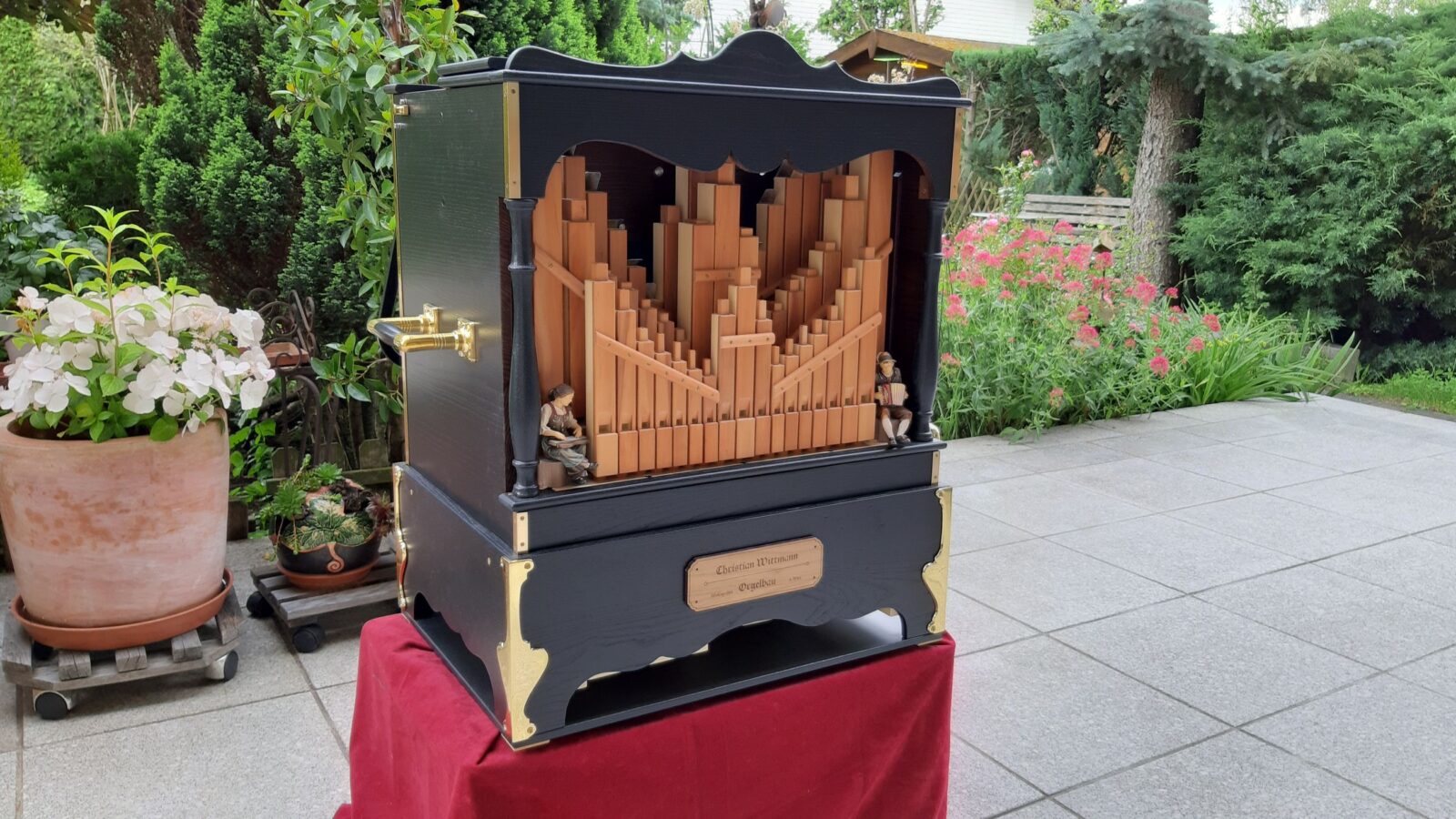
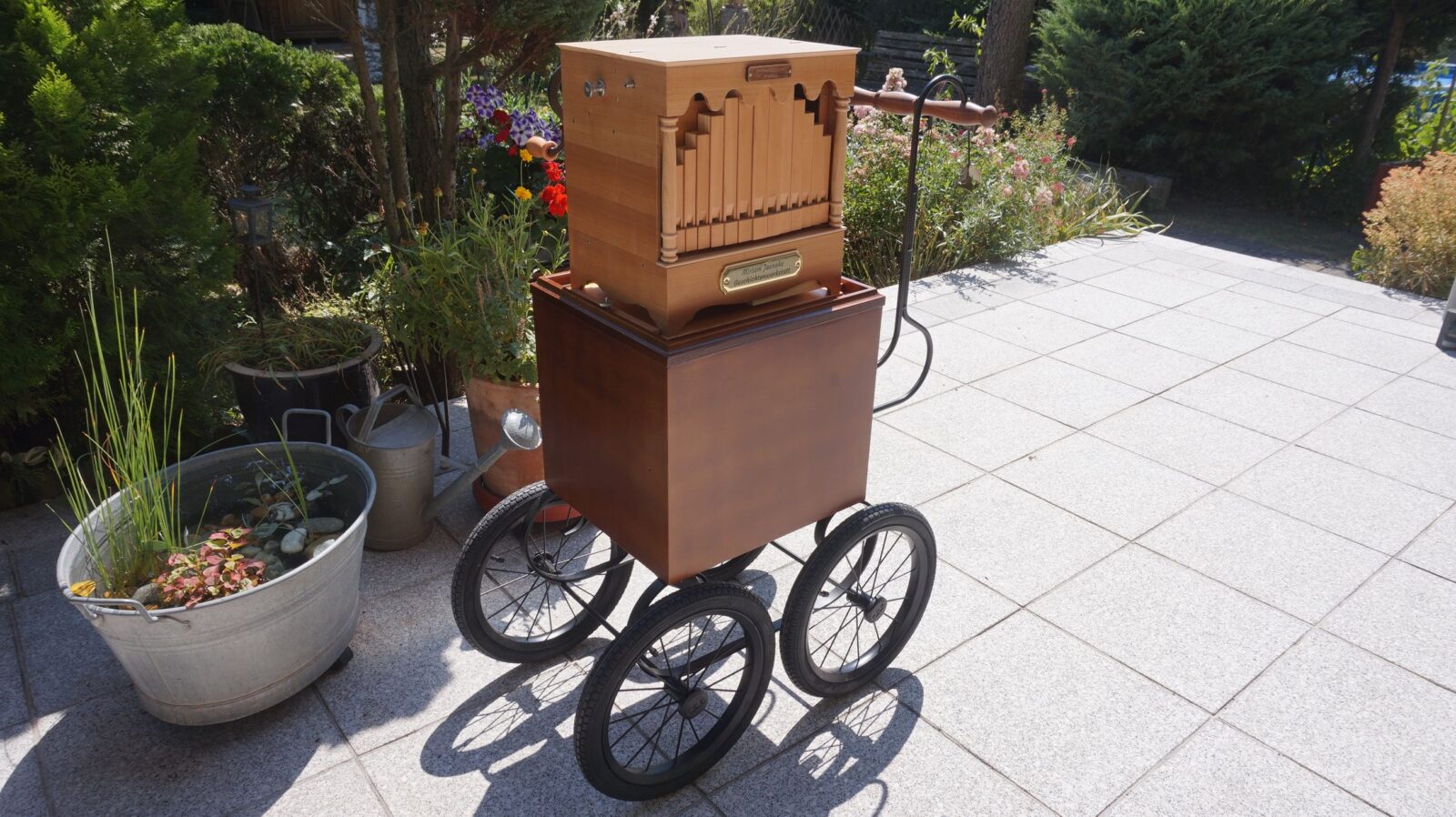
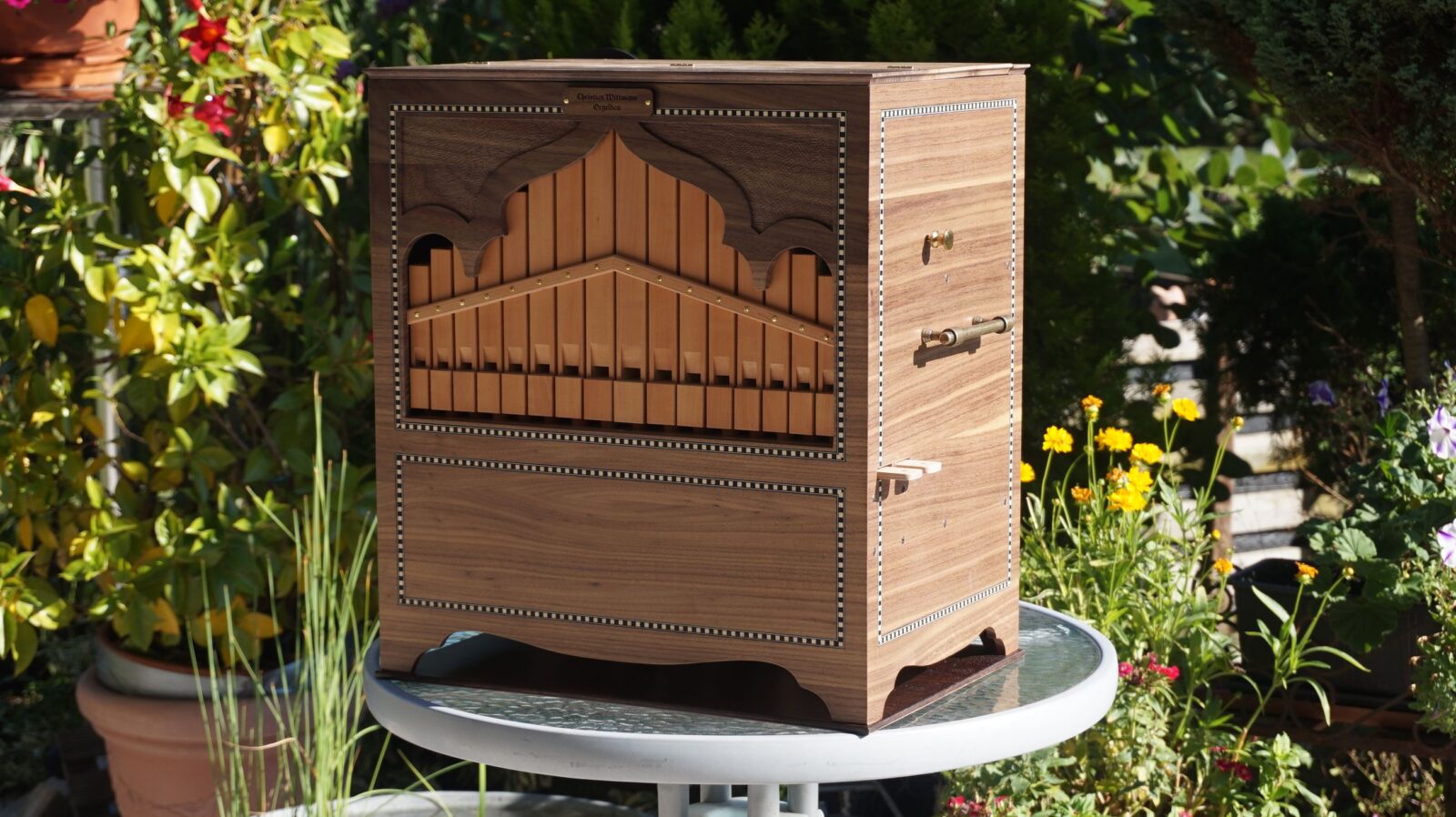
At the end, we would like to show you how this instrument actually works, and there is nothing better than that like a video. Enjoy!
You are currently viewing a placeholder content from YouTube. To access the actual content, click the button below. Please note that doing so will share data with third-party providers.
More Information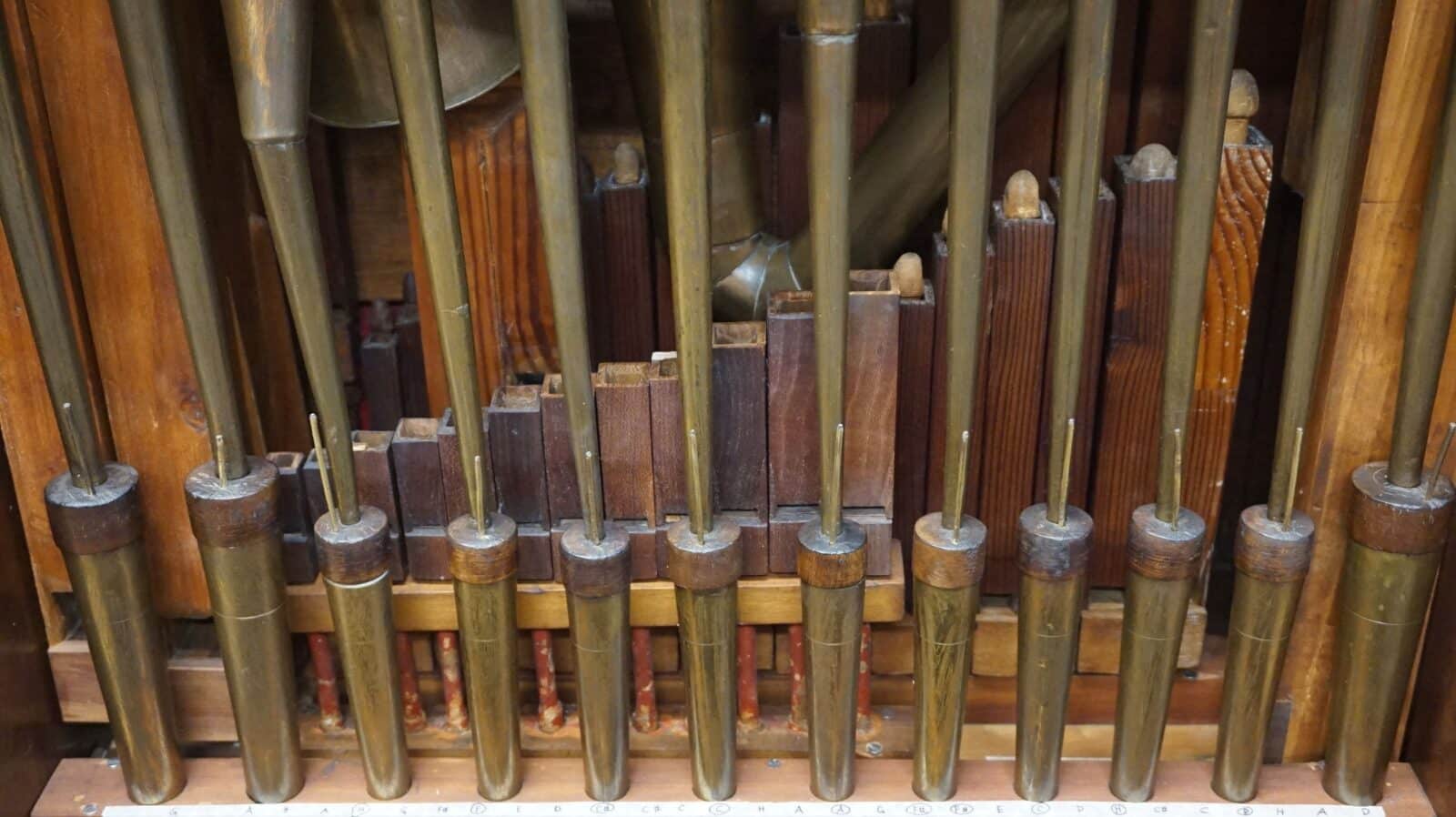
Images © Christian Wittman Organ Builder
Video © Der Leierkastenmann


